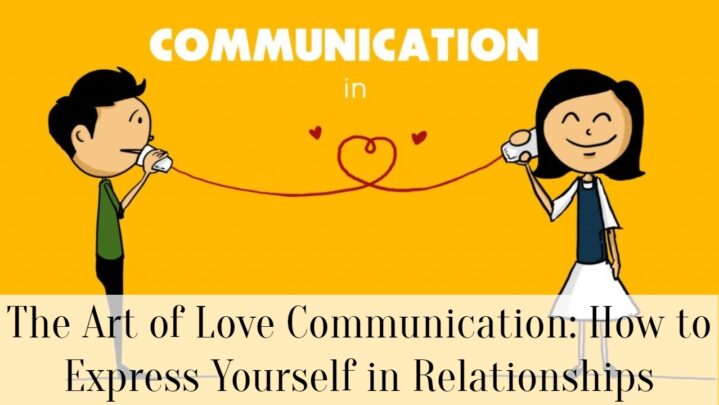Effective communication is one of the most crucial elements of a good partnership. In addition to talking, it involves listening intently and taking the other person’s feelings, opinions and wants into consideration. Establishing effective communication patterns is crucial since it has the power to create or ruin a relationship. In this post, we’ll look at some useful advice for showing your spouse you care and communicating with them.
Be honest and direct. Honesty is always the best policy. If something is on your mind, speak up and express your feelings and thoughts directly and respectfully. Avoid beating around the bush, being passive-aggressive, or using sarcasm to express your emotions.
Active Listening: Effective communication involves active listening. Show your partner that you are fully engaged in the conversation by maintaining eye contact, nodding, and responding appropriately. Don’t interrupt, judge, or ignore your partner’s feelings.
Use often “I” Statements: When expressing your thoughts and feelings, use “I” instead of “you” statements. For example, instead of “You never listen to me,” say “I don’t feel heard when I share my thoughts and feelings.”
Avoid blaming and criticizing your partner: Blaming and criticizing can be hurtful and self-defeating. Instead of saying, “You’re always late,” try saying, “I get frustrated when you’re late because it affects our plans.”
Express gratitude and appreciation: Don’t forget to express your love, appreciation, and gratitude to your partner. Recognize their efforts and contributions to the relationship and say “thank you” often.
Be receptive to criticism: Be receptive to suggestions from your partner. Attempt to comprehend their perspective and refrain from becoming dismissive or defensive. Feedback can help you grow as a person and improve your relationship.
Seek professional help: If communication problems persist, consider seeking professional help. A couples therapist can help you learn new communication skills, identify underlying issues, and build a stronger, healthier relationship.Effective communication is one of the most crucial elements of a good partnership. In addition to talking, it involves listening intently and taking the other person’s feelings, opinions and wants into consideration. Establishing effective communication patterns is crucial since it has the power to create or ruin a relationship. In this post, we’ll look at some useful advice for showing your spouse you care and communicating with them.
Be honest and direct. Honesty is always the best policy. If something is on your mind, speak up and express your feelings and thoughts directly and respectfully. Avoid beating around the bush, being passive-aggressive, or using sarcasm to express your emotions.
Active Listening: Effective communication involves active listening. Show your partner that you are fully engaged in the conversation by maintaining eye contact, nodding, and responding appropriately. Don’t interrupt, judge, or ignore your partner’s feelings.
Use often “I” Statements: When expressing your thoughts and feelings, use “I” instead of “you” statements. For example, instead of “You never listen to me,” say “I don’t feel heard when I share my thoughts and feelings.”
Avoid blaming and criticizing your partner: Blaming and criticizing can be hurtful and self-defeating. Instead of saying, “You’re always late,” try saying, “I get frustrated when you’re late because it affects our plans.”
Express gratitude and appreciation: Don’t forget to express your love, appreciation, and gratitude to your partner. Recognize their efforts and contributions to the relationship and say “thank you” often.
Be receptive to criticism: Be receptive to suggestions from your partner. Attempt to comprehend their perspective and refrain from becoming dismissive or defensive. Feedback can help you grow as a person and improve your relationship.
Seek professional help: If communication problems persist, consider seeking professional help. A couples therapist can help you learn new communication skills, identify underlying issues, and build a stronger, healthier relationship.





